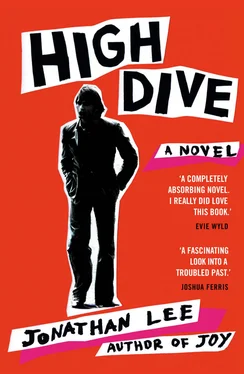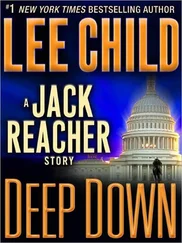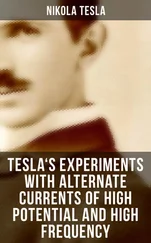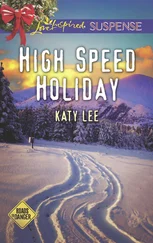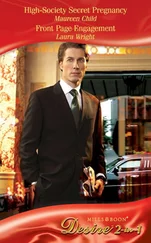In September 1984, a man calling himself Roy Walsh checked into The Grand Hotel in Brighton and planted a bomb in room 629. The device was primed to explode in twenty-four days, six hours and six minutes, when intelligence had confirmed that Margaret Thatcher and her whole cabinet would be staying in the hotel.
Taking us inside one of the twentieth century’s most ambitious assassination attempts — ‘making history personal’, as one character puts it — Lee’s novel moves between the luxurious hospitality of a British tourist town and the troubled city of Belfast, Northern Ireland, at the height of the armed struggle between the Irish Republican Army and those loyal to the UK government.
Jonathan Lee has been described as ‘a major new voice in British fiction’ ( Guardian ) and here, in supple prose that makes room for laughter as well as tears, he offers a darkly intimate portrait of how the ordinary unfolds into tragedy.
Jonathan Lee’s first novel, Who is Mr Satoshi? , was nominated for the Desmond Elliott Prize and shortlisted for an MJA Open Book Award in 2011. His second novel, Joy , published in 2013, was shortlisted for the Encore Award. The BBC’s Culture Show recently featured him as being one of Britain’s ‘best new novelists’. He lives in New York.
For Alfreda May Lee (1915–1996)
how difficult it is to remain just one person,
for our house is open, there are no keys in the doors,
and invisible guests come in and out at will.
— Czesław Miłosz, ‘Ars Poetica?’
WHEN DAN WAS eighteen a man he didn’t know took him on a trip across the border. It was 1978, the last week of June, six days after the British Army shot dead three Catholics on the Ballysillan Road. The car smelt of vinegar from fish and chips and the man had a scarred bald head and two jokes, one about the Brits and the other to do with priests. He seemed to be steering Dan somewhere near Clones, big square-tipped fingers drumming at the wheel, little jolts of surprise in his eyes sometimes as the road invented itself. He had a lavishly ugly cauliflower ear. He touched it several times as he drove. The crowded grey houses of Protestant Ulster gave way to light, to colour. You could feel the wind here and smell the grass. There were Derry buses streaming with red-and-white scarves. Flags in green and white and gold were wrapped around the branches of trees.
The bald man unleashed a magnificent burp as he swung the car onto a dirt track. The dirt track led down to a square of land enclosed by elms. Dan saw daisies, hay bales. A gleam of Coke bottle in the weeds. Beyond the bottle in a margin of shade a dark Land Rover was parked.
‘Don’t you worry yourself about the vehicle,’ the bald man said. ‘No one stops it, see? He’ll be thinking of a Saracen for Christmas.’
Dan tried to smile. ‘So that’s …’
‘Yeah?’
‘It’s Mr McCartland, is it?’
‘Oh,’ the bald man said, ‘I’d reckon so.’ With his seat belt still fastened he began pawing around in his jeans pocket for something, the touchy bulk of his body contorting like he was trapped in a torture chair, but a flattened packet of chewing gum was all that his hand retrieved. He looked at Dan and laughed. ‘Should’ve thrown you a can for the journey, shouldn’t I? A drink would’ve tightened the dung.’
The weather this morning was storybook pure. Big yellow sun. Smooth blue sky. A single white cloud as drawn by a child. It seemed the kind of day when nothing serious could happen. A day to drink eight pints and get burned. There weren’t many days like this in an Irish year; they asked to be remembered. He walked with the bald man towards the Land Rover, sharp grass going flat under their boots. Cottages were scattered around this land, detached places fronted by tilted fence posts and low open gates, window shutters swagging on tired hinge pins, properties that promoted an idea of privacy without ever quite needing to commit, and he too felt exposed, open. Sorely underprepared. He’d had no notice that the car was coming for him. Sweat was already forming at the base of his back. His leather jacket was cool but heavy. He’d heard so many stories about these initiations, the things they put you through before you could properly join, but he knew too that tall tales were Belfast’s stock-in-trade, the false often boosting the true.
A thin guy climbed out of the Land Rover. He wore specs and a smart shirt, sand-coloured trousers. Could this really be Dawson McCartland? He looked like an accountant. He pulled two large dogs out of the Rover on a long forked lead. One was gold and the other was brown. ‘Good morning,’ he said in a nasal monotone, nodding as if to prove that he meant it.
Dan went in for a handshake. Instead he received the dog lead. ‘I’m Dan.’
‘Well,’ Dawson said, removing his specs, ‘that’s a relief.’ His blurry eyebrows were joined and from under their awning he stared. A twinkliness to his eyes. The corners of his mouth upturned. With a hanky he wiped at the lenses of his glasses. The dogs were barking and pulling on the lead. He looked like a man struggling to contain some huge and mysterious amusement with the world and glancing down at his dogs now he sighed. ‘Away in the head they are, Dan. I love them more than my wife, these animals. Is that wrong, to prefer them to her?’
‘Dog lover,’ Dan said.
‘Are there others?’
‘Others?’
‘In Ireland, who love their dogs. You seemed to be assuming a category.’
Dan waited a moment. ‘Just a thing people say,’ he said.
‘On the whole I think of us more as cat fellas, Dan. Independent. It’s the Loyalists who are the dogs. Got any pets?’
‘Me?’
‘You.’
‘No.’
‘Not a rabbit, or anything?’
‘No.’
‘Chinchilla, maybe? Budgerigar? It’s going to be tough to let you volunteer without something , y’know. Freedom fighters need a mascot.’
There was a long pause.
‘I’m just pulling your chain, Dan. You’re with friends. This interview’s going to be very informal.’
The bald man was yawning happily, eyes sliding towards the trees, and the squirm of nerves in Dan’s stomach began to settle a little. ‘The lad’s not much of a talker, Dawson.’
‘You don’t say,’ Dawson said. ‘Might be a doer instead, eh?’ He took a pack of Newports from his pocket. ‘Want one, Dan? I’m a great supporter of silence.’
‘I’m OK.’
‘You?’
The bald man chewed gum. ‘Given up, haven’t I.’
‘On life?’
‘Fags.’
Dawson lit up and took a drag. ‘Same thing, I’d argue.’ He stood there smoking, crackling with his own peculiar charisma, the kind of self-assurance Dan had only recently learned how to fake. Every movement with the cigarette was well mannered, expert, measured and tight, as if designed to counter rumours that he could be a vicious brute. With great delicacy, as Dan leaned back into the breeze, Dawson tapped some ash away and let smoke escape a smile. ‘So,’ he said to the bald man. ‘Business. Tell me about young Dan here. What’s he got going for him apart from his looks, his height? Who recommended?’
‘Mad Dog,’ the bald man said.
‘Which Mad Dog, though?’
The bald man sniggered at this. Paddy was quiet, diminutive, aways keen to understand, with a careful moustache and small blue eyes he had a knack of keeping steady. He was ten years older than Dan and if he really was known as Mad Dog it would be a joke, Dan thought. Like calling a small man Big Tony. A ladies’ man Gay Sam.
Читать дальше
